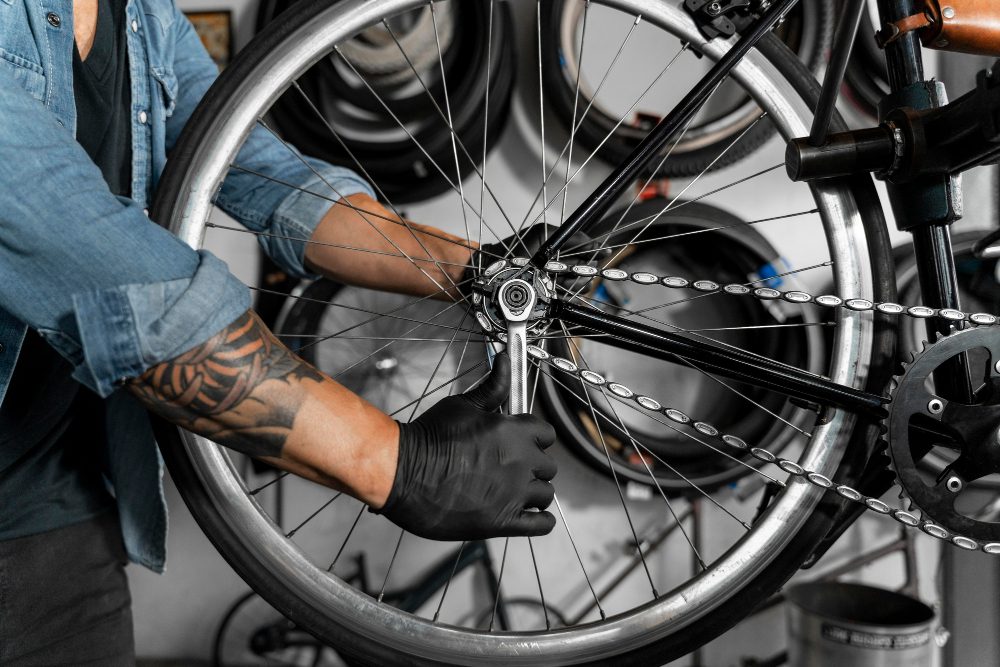Is coil fork better than air fork?
Introduction
When it comes to choosing the right fork for your mountain bike, there are two main options to consider: coil forks and air forks. Both offer advantages and disadvantages, and the decision ultimately depends on your specific riding style, preferences, and terrain. In this article, we will discuss the differences between coil forks and air forks, their pros and cons, and help you make an informed decision on which type of fork might be better suited for your needs.
Coil Forks
Coil forks use a metal coil spring to provide suspension and absorb impacts. They are known for their durability, consistency, and ability to handle rough terrains. Coil forks offer a more linear suspension feel, meaning they compress and rebound consistently throughout their travel. This can be beneficial for riders who prefer a predictable and stable ride, especially in aggressive downhill or enduro riding.
One of the main advantages of coil forks is their ability to provide excellent small bump sensitivity. The coil spring responds more sensitively to small, repetitive bumps, resulting in a smooth and controlled ride. Additionally, coil forks typically require less maintenance compared to air forks, making them appealing to riders who prefer a “fit and forget” approach.
However, coil forks also have some downsides. They tend to be heavier than air forks, which can be a disadvantage for riders who prioritize weight savings. Additionally, coil forks are generally not adjustable as air forks, so finding the perfect setup for your riding style may require experimenting with different spring rates.
“Coil forks are a popular choice for riders seeking consistent performance and superior small bump sensitivity.” – Mountain Biking UK
Air Forks
Air forks use compressed air as the main source of suspension. They are typically lighter than coil forks, making them a popular choice for riders who prioritize weight savings and climbing efficiency. Air forks often offer more adjustment options, allowing riders to fine-tune their suspension to match their preferences and riding style. This adjustability includes features such as air pressure, compression damping, and rebound damping.
One of the main advantages of air forks is their versatility. Riders can adjust the air pressure to suit different terrains and riding styles, making them suitable for a range of disciplines from cross-country to downhill. Air forks also tend to be more progressive in their suspension feel, meaning they provide a more supportive ride towards the end of their travel, which can be beneficial for riders who encounter bigger hits and jumps.
However, air forks may not be as durable as coil forks, especially when subjected to aggressive riding or harsh impacts. They can also be more complex to set up and maintain, requiring regular checks and adjustments to maintain optimal performance.
Are Carbon Forks Better than Steel?
Carbon forks and steel forks are two popular options for cyclists when it comes to choosing the front suspension for their bikes. Each material has its own set of advantages and considerations, making it important for riders to understand the differences before making a decision.
Carbon Forks
Carbon forks offer several benefits that make them a desirable choice for many cyclists. Firstly, carbon is incredibly lightweight, which can have a significant impact on the overall weight of the bike. This can result in improved speed and agility, making it a popular choice for road cyclists and racers.
In addition to being lightweight, carbon forks also provide excellent vibration dampening properties. This means that they can effectively absorb road chatter and vibrations, resulting in a smoother ride. This can be particularly advantageous for long-distance riders or those who frequently encounter rough road conditions.
Steel Forks
While carbon forks offer impressive performance, steel forks also have their advantages. Steel is known for being strong and durable, making it suitable for riders who prioritize durability over weight savings. Steel forks are less prone to cracking or breaking, which can be a concern for riders who frequently tackle challenging terrains or participate in mountain biking.
Furthermore, steel forks tend to be more forgiving when it comes to impacts and rough handling. They can absorb more shocks and bumps, providing a level of reliability and confidence for riders who engage in aggressive riding styles or off-road adventures.
Choosing the Right Option
Ultimately, the choice between carbon forks and steel forks depends on various factors including riding style, terrain, and personal preferences. Road cyclists and those looking for maximum weight savings may find carbon forks to be the better option. On the other hand, riders who prioritize durability and reliability may lean towards steel forks.
It’s important to note that both carbon and steel forks have advanced over the years, and modern versions of each offer impressive performance. It’s recommended to test ride bikes with different fork materials to get a firsthand experience of their characteristics and make an informed decision.
Overall, there is no definitive answer as to whether carbon forks are better than steel forks. The choice ultimately rests with the individual cyclist and their specific needs and preferences.
“Carbon forks excel in terms of weight-saving and vibration dampening, while steel forks provide durability and reliability.”
Comparison Table
| Fork Material | Advantages | Considerations |
|---|---|---|
| Carbon | Lightweight Vibration dampening |
Possible cracking or breaking May not be suitable for aggressive riding styles |
| Steel | Durable Forgiving on impacts |
Heavier compared to carbon Less vibration dampening |
Conclusion
When it comes to choosing between carbon forks and steel forks, it’s essential to evaluate personal preferences, riding style, and terrain. Both materials have their merits and considerations. Whether you prioritize weight savings and vibration dampening or value durability and reliability, there is a fork out there to suit your needs.


